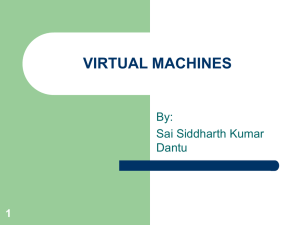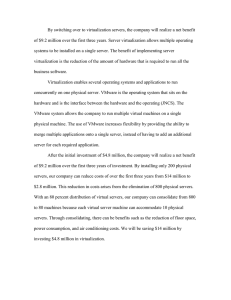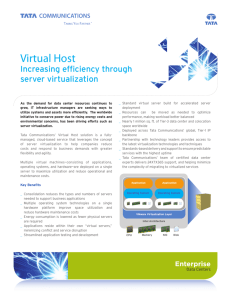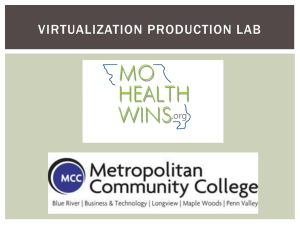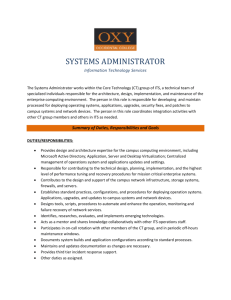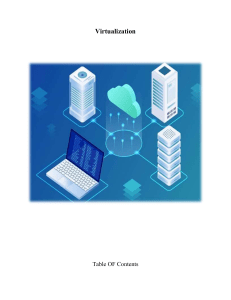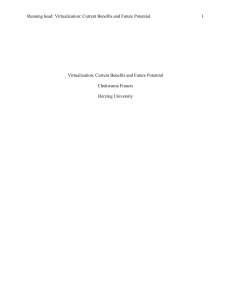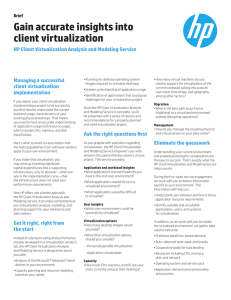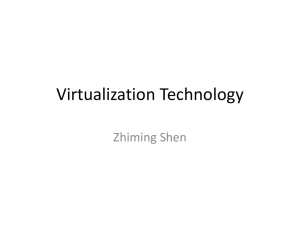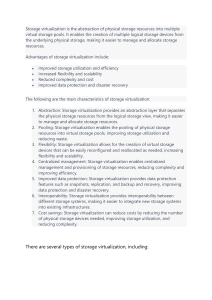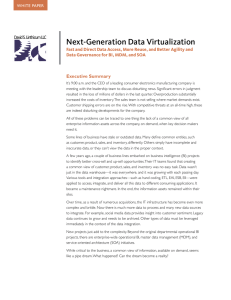Virtualization By Pete Winslow, Erica Stine, Risa Chambers
advertisement
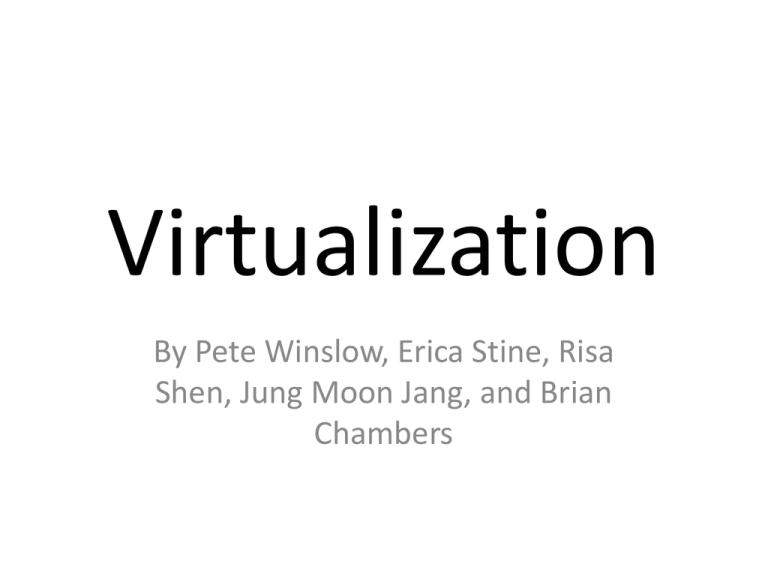
Virtualization By Pete Winslow, Erica Stine, Risa Shen, Jung Moon Jang, and Brian Chambers What is virtualization? • Virtualization allows one computer to do the job of multiple computers. • Virtual environments let one computer host multiple operating systems at the same time How does it work? • Virtualization transforms hardware into software. • It is the creation of a fully functional virtual computer that can run its own applications and operating system. • Creates virtual elements of the CPU, RAM, and hard disk. Background and Evolution • Virtualization arose from a need in the 1960’s to partition large mainframe hardware. • Improved in the 1990s to allow mainframes to multitask. • First implemented by IBM more than 30 years ago. Pros • Benefits include freedom in choice of operating system. • It saves time and money. • Consolidates server and infrastructure. • Makes it easier to manage and secure desktop environments. Cons • Only powerful computers can successfully create virtual environment. • Requires training to operate. Our Opinion • Virtualization is a cost-effective way to run multiple operating systems and software. It allows for greater access to basic system resources. It is safer and easier to manage than physical hardware. The end • Thanks • Have a nice afternoon sources http://www.vmware.com/virtualization/ http://www.desktop-virtualization.com/images/x86-hardwarevirtualization.jpg http://www.thedisciplinedinvestor.com/blog/wpcontent/uploads/2008/01/vmware_virtualization.jpg
